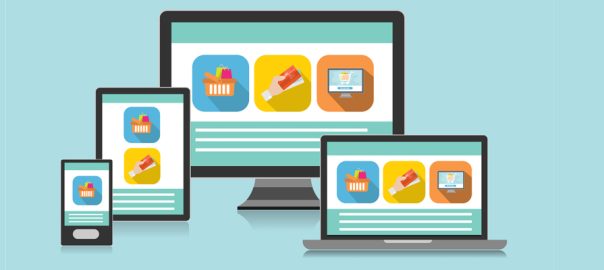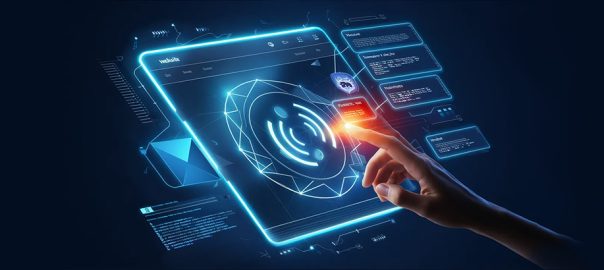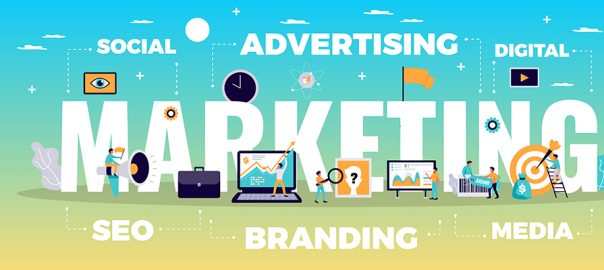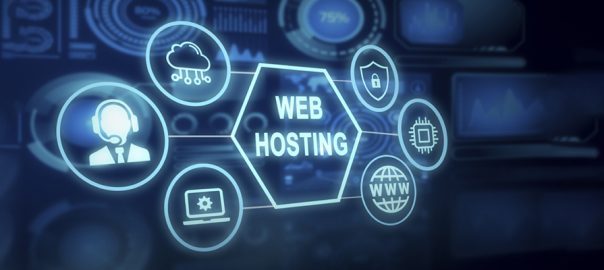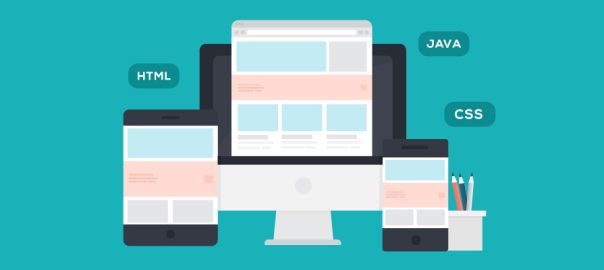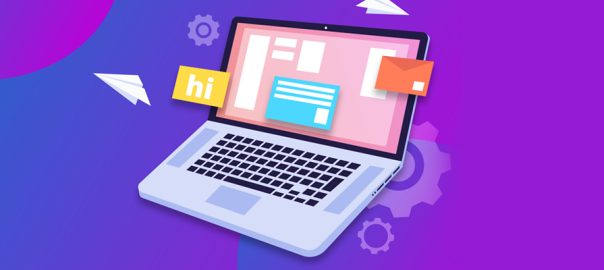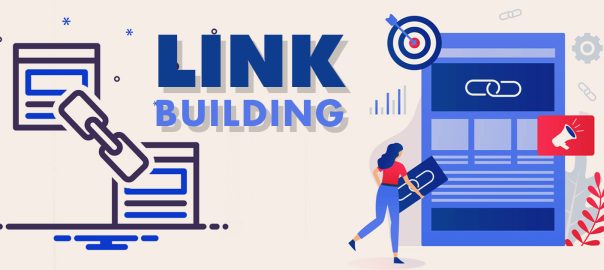Custom CRM Development Services
Businesses these days need modern tools to meet and exceed the expectations of their customers. One tool businesses cannot do without is a CRM solution. A CRM system can help companies compile, organise, and analyse all customer information and interactions to personalise the customer experience, build strong relationships with customers, and improve the efficiency of business operations. A robust CRM solution can help companies race ahead of their competitors quickly. There are many off-the-shelf CRM solutions available in the market. However, every business has some unique need of its own. To tailor the CRM solution to suit your requirements, you need a custom CRM development services company. Regardless of where you operate, finding a reliable custom CRM development services company is a crucial decision to make. And things are not any different in India either. If you want to reap the full benefits of the CRM tool, you need to find a professional and reliable custom CRM development services company in India. Though there are many CRM development companies in the market, you need to find one that helps customize the solution to suit your requirements.
And one company that has created a niche for itself in India in customising CRM solutions is vStacks Infotech.
Welcome to the world of vStacks Infotech!
We are a custom CRM development services company based out of Noida. We have offices in the United States, UK, UAE, and India, and we have an international reputation and expertise in providing viable software solutions for companies in different verticals.
Our product, eZnetCRM, is an intuitive and user-friendly generic CRM that has been well-accepted by customers, both big and small. What makes us stand out from the other companies is we can customise our offering to suit your requirements.
eZnetCRM is a cloud-based, enterprise-wide CRM solution that can help you build strong relationships with your customers.
What is custom CRM software?
CRM is a tool that helps businesses manage employees, vendors, and partner relationships. You can also use the application to manage customer data, customer interaction, automate sales, marketing, and customer support.
The biggest drawback of using an off-the-shelf CRM solution is its inability to provide all the features and functionalities. Every organisation has some unique need of its own. And unless you customise the solution to suit your requirements, it is tough to reap all the benefits. That is why businesses must opt for custom CRM software. A custom CRM solution designed by a custom CRM development services company can incorporate all the features and functionalities you need to prosper as an organisation.
Custom software development is the optimal choice because there is no one-size-fits-all business software.
Benefits of using a custom CRM solution
There are several advantages of using a custom CRM solution, and some of them include:
- A custom CRM solution can streamline your business more appropriately.
- It helps improve the efficiency of your employees because the solution is designed to suit the requirements of your employees.
- It can improve your sales.
- It helps improve customer satisfaction.
- With a custom CRM solution, you get to serve your customers better.
- It can significantly improve your customer service because the solution is designed to suit your requirements.
- It offers better analytics.
How to evaluate a custom CRM development services company?
To select the best CRM solution for your company, ensure the custom CRM development services company you choose ticks all these boxes:
- Experience
- Ease of use
- What they can customise?
- Integration
- Support
- Return on investment
- Scalability and mobility
How to evaluate a custom CRM development services company?
We have the requisite exposure, experience, and expertise to develop innovative software solutions for businesses in diverse verticals. Our developers have worked diligently in developing eZnetCRM from scratch.
The product is not just easy to use, but it is intuitive as well. It has a user-friendly interface and people find it extremely easy to navigate.
We have experienced developers in our fold who can tailor the solution to suit your requirements. Our product is feature-rich, but we also can change and incorporate features that businesses need to streamline their business operations. We are capable of offering you a solution that can meet all your needs.
eZnetCRM can integrate well with most of your existing applications; hence, you don’t need to worry about integration.
We offer round-the-clock customer support to all our clients. We have responsive customer care, and our dedicated team is capable of resolving all your issues.
When you use eZnetCRM, you can rest assured about your return on your investments. The product will help you generate a lot of revenue.
You also don’t need to worry about scalability and mobility. Our CRM services are scalable, you don’t need to worry about your growing needs. Also, since your sales team can use the CRM solution on the go, they can serve their customers better.
We offer competitive pricing, and our rates are comparable to the best in the industry.
If you are looking for a reliable custom CRM development services company, you must contact vStacks Infotech now.
What You Need To Know About Google’s Duplicate Content Penalty?
Effective communication is a must to connect with your target audience. Unless you communicate effectively with your audiences, it is tough to scale new heights in the business world. As a business owner, you have many options to choose an effective communication channel. And one communication channel that has no parallel is email.
Yes, email has stood the test of times. It is one of the oldest and most effective communication channels available to businesses.
But if you are using a free email account like @gmail.com, @yahoo.com, etc. to meet your business needs, it is a mistake that can yield negative results. There is no harm in using a free email account for personal purposes, but it is not the right choice if you use it for professional purposes.
If you use a generic email account, people might not take your business seriously. As a business, if you are using a generic email account, it reflects poorly on the professionalism of the organisation.
What you need is a reliable email hosting service that allows you to have an email account of your own. An email account of your own not just makes you look more professional, but it also generates trust among your audience.
Let us, therefore, take you through the benefits of business email hosting – why business email shows a level of trust, how added security protects your business, and how it makes you more organised.
Business email shows a level of trust
Trust is a crucial ingredient when you are dealing with your consumers. When businesses use a free email account, it doesn’t invoke a feeling of trust.
However, business email shows a level of trust.
Research has shown that professional email addresses help build trust among consumers. If you have an email address linked to your website, people tend to take you more seriously, and it helps create a feeling of trust among your prospective customers. A professional email address not just invokes a feeling of trust, but it can also serve as a marketing tool to boost your website traffic. When your professional email address is the same as your domain name, it becomes easier for your prospective clients to find your website. For example, when your email address is michael.cook@easysolutions.com & your domain name is easysolutions.com, it is not all that difficult to locate your website.
It makes you look more professional, trustworthy, and authentic.
Added security protects your business
Security is an issue that needs serious consideration by companies of all sizes. There is no harm in taking the necessary precautions. Without a doubt, added security protects your business. And, when you opt for a reliable email hosting service, you can rest assured that your company information in the form of attachments and other details will remain safe and secure from the prying eyes. When you don’t have to worry about security, you can focus more on streamlining your business processes.
Any company worth its name in the market in the email hosting service segment will provide secure HTTPS connections, spam and antivirus filters, firewall protection, and standard SSL encryptions. With these protections in place, it is difficult for unauthorised users to invade your privacy.
Stay more organised
A professional email address is not just easy to remember, more credible, and trustworthy, but it is also safe, helps you stay more organised, and you can use it for life.
Typically, people take you more seriously if you use a professional domain to send business emails. A business email address makes you look more credible and trustworthy. It is, therefore, crucial to have one to do well in the business landscape.
If you opt for a professional email address, you can use it to build your brand. You can use a brand-building signature and attach it with all your emails, which is a good way of taking your brand to your consumers and prospects.
Another benefit of having a professional email address is it helps your prospects to locate you in the online landscape. When your email address and your website address are the same, none of your prospects will have any problem.
A professional email address remains with you forever. For example, you don’t have to worry about losing it when you change your internet service provider (if you are using one of them).
Moreover, a professional email address helps you to stay more organised.
When you opt for a reliable email hosting service, you have an email account of your own. You can create different addresses for different departments to make your processes more organised. Whether you have four employees, eight employees, or more, you can create separate email heads to organise your workflow. For example, you can create sales@easysolutions.com, billing@easysolutions.com, feedback@easysolutions.com, customersupport@easysolutions.com, and so on.
It gives a more professional and organised look to your workflow among your customers.
If you are looking for a reliable business email hosting service provider, you must contact vStacks Infotech now. What is the point in paying extra for inhouse servers, license fees, and IT staff? We have been in the cloud business for long, and we understand the importance of communication. Our hosting ensures that you don’t face problems in communicating with people within and outside your organisation.
Strategies to Follow to Reach Your GenZ Target Audience
Digital marketing has slowly become one of the most potent forms of marketing. Unless you add digital marketing to your scheme of things, it is tough to reach your target audiences these days. Influential marketing has gradually started to challenge traditional forms of marketing. When it comes to social media and marketing, people think it influences only the millennials. But this is not true at all.
You need to understand that influencer marketing is one of the most effective ways of reaching out to your target audience, not just for the millennials but also for audiences across age groups and interests. And, when we say people from all age groups and interests, it, of course, includes Generation Z or GenZ. Millennials are not the only ones hooked to their mobile phones. GenZ also spends a lot of their time on their mobile phones.
With consumer trust dwindling in brands’ marketing communication, people these days turn to their family and friends for a recommendation, And, this is where influencer marketing plays an extremely significant role.
Though influencer marketing is one of the best ways to promote your brand across all age groups, yet you need to understand that each group requires a different approach. Every age group differs in behaviour, interests, and needs. Hence, it is vital to customize your campaign per the needs of the age bracket you target.
It is not necessary that an influencer marketing campaign that is a hit among the millennials also generates the same traction in the older age bracket. That is why you need to customize your campaign to target them effectively.
And, if you are looking for marketing strategies to reach GenZ, then you are in the right place. Let us take you through who all constitute GenZ, how to market to GenZ, and the rise of TikTok on social media.
So, who is GenZ anyway?
Irrespective of the type of marketing, it is imperative for the brands to know their target audience thoroughly to reach them effectively. Hence, when you are planning to target the Gen Z, it is necessary to know a few things about them as well.
So, who is GenZ anyway?
Generally, people born from 1995 to 2010 are known as Gen Zers. Born and brought up in the digital age, this generation (also known as digital natives) is pretty comfortable in using online platforms and social media. They tend to spend a lot of their time on the online landscape.
And, what are the platforms that you need to choose to target the GenZ?
If you want to target GenZ effectively, you need to target these platforms:
- YouTube
- Snapchat
To effectively target GenZ, you need to make sure that you communicate your brand’s values to them. If your influencer campaign can put values into action, then your marketing strategy can resonate well with them.
Also, if you want to attract Gen Z, you need to be authentic and genuine. You can use micro-influencers to target them effectively because they listen to them.
You should also use social media to boost in-store purchases. Almost half of Gen Zers use Instagram to discover new brands. Hence, your influencer campaign for them must include Instagram’s in-app shopping feature. But it is vital to ensure that your content is appealing.
Marketing to GenZ
If you want to make your marketing campaign successful, it is vital to know your audience. If you don’t know your audience, you cannot target them effectively. Hence, if you want to reach out to your GenZ audience, it vital to know what they want, how they make their purchases, and things that can influence them.
You need to understand that marketing to GenZ is different from millennials. If you want to make your campaign effective, you need to understand their values and how they go about making their (read GenZ) purchases.
Gen Zers are independent, focused, hard-working, determined, responsible, and competitive.
So, why is it important to understand them?
It is important to understand Gen Zers because the youth culture is impacting the consumer culture in a big way across age brackets. Industries take the cue from Gen Zers.
Generation Zers have tremendous buying power, and you cannot ignore them. It is not their buying power alone that you need to factor in as a business. You also need to understand that they have a huge influence on their parents’ spending. And together, this forms a huge consumer block, which businesses cannot afford to ignore.
Generation Z and millennials have some similarities but have differences as well. They have a similar digital, social, and mobile behaviour, and both groups are early adopters of everything that can make their lives simple.
The differences include – privacy is more important to GenZ, they have more traditional values, and are more competitive than the millennials.
For Gen Zers, human equality, family, individuality, success, fiscal security, and transparency are extremely important.
So, what influences Gen Zer’s purchasing decision?
Two things that are extremely important to them are quality and value. If they don’t see value in what they are buying, they don’t go ahead and make the purchase.
Identity for Gen Z is also very important. Usually, they purchase an item if they think that it fits their unique identity, or if they believe that the product reflects their values.
Peers also influence the purchasing decisions of GenZ. They tend to take the advice of their peers before making a purchase.
Also, if you don’t make your products available in a mobile-friendly way, Gen Zers are unlikely to buy from you.
Generation Z believes in instant gratification. They want products and services that they can consume instantly.
Finally, what attracts GenZ to brands?
Gen Zers are upright in their approach; they follow what they preach. And, this is what they expect from the brands as well. Businesses that take a stand on important issues tend to leave an indelible imprint on this generation.
Generation Zers don’t like to remain in a make-believe world. Hence, if you want to target GenZ effectively, you need to make sure that your marketing messages are realistic.
They believe in striking an authentic two-way conversation. Hence, if you want to market effectively to GenZ, take them along.
This is TikTok’s Time
As marketers, it is important to know the platforms you need to choose to tap your audience. There are various social media platforms that you can use to reach your target audience. For example, you cannot ignore Instagram, YouTube, and Snapchat if you want to target the Generation Z.
But there is another platform that is catching the imagination of people, and it is TikTok.
Yes, this is TikTok time, and it has taken the internet world by surprise. TikTok is a machine learning social video platform from China that is gaining popularity by the day.
TikTok is growing rapidly, and as a brand, if you want to target Gen Zers, you should not ignore it.
TikTok is a mobile-first social content platform that offers short-form videos that are rich in music, dancing, comedy, trends, and intimacy. It allows you to follow people, browse popular videos, and explore hashtags.
You would think that it is just like any other content app like Instagram, Vine, YouTube, etc. out there, but it has much more to offer.
TikTok is unique because of two reasons – the type of content it offers and the content distribution system it adopts to distribute the content.
On this platform, everything starts and ends with sound. The sound here is an audio clip with a duration between 15 and 60 seconds, from music and dialogue clips to TV shows superimposed on top of your TikTok videos.
TikTok is changing the social media landscape altogether. We have been used to seeing different content coming from different sources, but TikTok is changing this concept. A new trend has emerged, where everyone seems to be making the same content – here the person doesn’t change the content, the content changes the person.
Hence, as a marketer, if you want to reach your GenZ audience, you need to add TikTok to your scheme of things.
What sets TikTok apart from others is its content distribution system. It uses AI and ML to evaluate your video and ranks it accordingly.
As a marketer, you need to understand that if you want to capture the imagination of your audience, you need to speak the same language as that of the TikTok users.
TikTok has become a mainstream app with celebrities and brands trying to figure out how to make their presence felt on the platform to exploit the huge market.
Hence, if you have in place a strategy to target your GenZ audience on TikTok, you are sure to get the first-mover advantage.
So, as a brand, how can you engage with TikTok?
There are three ways you can go about doing it:
You can advertise on TikTok. Your ad/s will be displayed when people load the app and when they scroll their feed.
You can also make your video content. But make sure that your content is original, you follow the trends, and use proper sounds.
You can also use influential marketing to promote your brand on TikTok. You can pay TikTok influencers to include your brand in the content they create or tag your TikTok account.
Soon, TikTok is going to improve its advertising platform. TikTok is also trying to find a way to facilitate shopping for its users so that they do not have to leave the app.
In the times to come, most brands will have a TikTok strategy to target their audiences, people across age groups will use the platform, and it will become a hub for e-commerce dealings.
If you want to tap your audience and are looking for an effective marketing strategy, you can contact vStacks Infotech now. We have been in the digital landscape for a long time, and we know what it takes to create an effective social media marketing strategy.
The Importance of Link Building
The online landscape has opened up a lot of opportunities for businesses, both big and small. After all, you can find most of your customers and prospects on the internet these days. Every business worth its name in the market now has an online presence. However, unless you rank well on search engines, you cannot prosper in the online arena. There are many things you need to do to improve your visibility online. Among them, link building is an important exercise you need to focus onto make your online journey relevant.
But it is crucial to understand that things in the SEO and link building world change thick and fast. Earlier, the focus on link building was on quantity, but now it hovers squarely on quality.
When it comes to link building, you need to know that acquiring high-quality links is a gradual process; you cannot create them instantly.
The quality and authority of pages where you create the links are vital parameters that determine how well you will rank on the search engine results.
Whether you outsource your link-building work to an SEO services company or you do it yourself, it is important to understand why link building is vital to your online scheme of things.
To help you understand the power of link building, let us take you through what is link building, what is your audience and what do they do, and the role of social media.
What is link building?
So, if you want to rank well on the search engine results, you need to know what is link building.
The process of getting hyperlinks or links from other websites to your site is called link building. A hyperlink allows you to navigate between pages when you are surfing the net. Search engines take a serious note of these links – they use links to crawl the web. Search engines crawl the link on all your website pages, and they also crawl the link on all the websites.
So, why is link building important?
Link building is extremely crucial for the success of your online journey because search engines use links to discover new web pages, and links help them determine how well they should rank those pages on their search results.
If you want to stay on top of the SEO and steer ahead of your competitors, it is vital to get high-quality links. There are many ways to build links. But as a website owner, you need to understand that it is not an easy process.
Who is your audience and what do they do?
Link building is important for SEO. But more than that, you need to focus on link building because it helps you drive traffic to your site.
Link building is important for SEO. But more than that, you need to focus on link building because it helps you drive traffic to your site.
It is, therefore, important to have in place a robust link building strategy.
However, if you want your link building strategy to be successful, it is vital to understand first who is your audience and what do they do.
If you want to grow as an organisation, you need to find a new audience. Hence, as a website owner, it should be your endeavour to keep expanding your audience. To expand your audience, it is important to understand your present audience and what is your ideal audience. For example, at vStacks Infotech, our audience initially consisted of web developers, but we wanted to expand our horizon and target digital marketers in general without losing our core audience base. We tweaked our content to attract our new audience, but to get their attention, we needed links from other websites in our content. And, with high-quality links in place, we acquired our new audience base. To know your audience, you need to do some research. Find out who your audience is, what do they want, and what you need to do to acquire a new audience.
Once you know your present audience and the new audience whom you want to acquire, you should make a list of websites that can help you to reach out to your new audience. If you get links from these websites, it will become easier for you to attract your new audience.
To make a robust link building strategy, you need to do some research about your present and future audience, then make a list of websites that can facilitate your efforts. Next, you need to create compelling content so that other relevant websites link to your content. Make sure that your content appeals to those whom you are trying to bring to your fold.
After producing the content, make a list of websites you think are in the same genre and could agree to link to your content. If your content is compelling and amazing, some websites on your list will agree to link to your content.
Next, reach out to those websites whom you have shortlisted and explain to them about your product and content so that they link to your page.
Lastly, don’t forget to exploit your social media options.
Get active on social media
If you want to do well in the digital world, get active on social media.
Social media is a powerful tool. Social media has transformed the marketing landscape. If you haven’t as yet started using social media to your advantage, then you are missing big time on opportunities.
If you leverage social media properly, it can give a big boost to your link building plan. If your content is compelling, original, and amazing, you can reach new audiences and get high-quality links by using social media. You can start by sharing new posts, blogs, updates, images, and videos on social media platforms like Facebook, Twitter, Instagram, LinkedIn, Pinterest, YouTube, etc.
Getting active on social media is one of the best ways to increase engagement and attract new audiences. Using social media makes both your brand and site URL more visible. And, if your content is good, people share your post/s widely among their target audience, thereby increasing your chances of acquiring new audiences. Your chances of getting high-quality links increase substantially because social media can have a ripple effect.
When you get active on social media, it allows you to connect with blogs and marketing influencers, which can surely have a positive effect on your overall link building strategy. Social media not just improves your link building plan, but it also enhances your overall visibility.
If link building strategy seems to be a problem, you can get in touch with vStacks infotech now. We have been in the digital world for a long time, and we know what it takes to develop a robust link building strategy.
Do You Need to Get Your Website Redesigned?
Every business these days need to have an online presence. Unless you have an effective online presence, you cannot beat the competition. And one thing that is essential to make your online journey a success is a website. However, it is crucial to understand that a drab and dated website cannot make your online presence effective. What your business need is a modern, engaging, attractive, functional, and visible website. Your website is the face of your organisation, and you need to present the best you can to your customers and prospects to create a good first impression among them.
It is important to understand that a sloppy web design can hurt your business seriously.
You cannot realise your online goals if your website is unimpressive, outdated, difficult to navigate, and unresponsive. If this is your story, then you need to get your website redesigned.
Yes, when done in the right way, a website redesign can change the look and feel of your website. It can give your website the teeth to steer ahead of your competitors in the online landscape.
So, should you opt for a website redesign or not? Let us walk you through why you should consider a redesign, where to get started with a redesign, and why do you need to make your website mobile-friendly.
Why should you consider a redesign?
As a website owner, it is vital to understand why you should consider a redesign.
So, how do you know that your website needs a redesign?
Some of the things that can help you understand that it is time to get your website redesigned are:
If your website design is outdated, it is time to get your website redesigned. Yes, it is extremely difficult to get the desired results if your design is not up to the mark. Hence, if your website design is outdated, you need to redesign your website.
Another important thing to consider is your conversions/ sales. If there is a decrease in your conversion/ sales, you might need to get your website redesigned.
If you receive user experience or design-related complaints, it is time to get your website redesigned.
Another thing to consider is branding. If your website doesn’t fit your larger branding goals, then you need to get your website redesigned. Conversely, if you are rebranding your business, you need to consider redesigning your website.
If your website is facing any one of these issues, you need to consider redesigning your website.
Where to get started with a redesign?
Once it is clear that your website needs a redesign, it is vital to know where to get started with a redesign.
First, it is important to assess your needs – the number of pages you want for your new site, the number of unique pages you want, and what are the functionalities you want. You should also establish your goals so that you know how to realise them.
Next, it is vital to understand user personas. You need to find out who all visit your website and what do they want. Try to understand what they want and what you need to do to improve their experience.
You also need to understand how you are presently getting your visitors. Generally, you would know what works best for you – tradeshows, outbound sales team, or organic traffic from Google. It is important to know how you generate your traffic because it is going to impact your web design.
Also, find out how much time you need to complete the project. Whether you are doing it on your own or have hired a website redesign agency, don’t rush through the process. But one thing you should be careful about is content creation. Make sure that you have the relevant content when you need it.
Another crucial thing is to allocate a budget for the redesigning project. You need to know how much you can spend on the project before you take the plunge.
Yet another thing is to do a bit of research. Find out what your competitors are offering, and how you can improve your website to beat the competition.
Also, if you have to outsource your website redesign project, decide on the website redesign company that can successfully redesign your website, and designate a person who can oversee the project.
However, as a website owner, it is important to understand the process of website redesigning. Here are some of the things that you should keep an eye on at every stage – content stage, design stage, SEO, and development stage.
Content stage
It is vital to consider the sitemap of your website first. The sitemap is a list of all the pages on your website and the way they will relate to one and other. Start by analysing your current sitemap.
Then, an audit is done with the help of Google Analytics to find out how your current visitors are interacting with your website.
Next, a new sitemap is created based on the audit report. The process includes adding new pages, removing the redundant ones, and restructuring the pages that will best suit your website.
After this, you need to think about the content. You can pull out all the existing content from the website and place it in a central repository like Google Docs.
Next, work on the images. Collect all the stock photos you need for the project and keep them in a safe place like Google Drive.
Design stage
If you are getting confused about what to do first – the design or the content – you need to understand that you should work on both of them together.
Work on Homepage design first. When you settle your home design, it means you know what you need to do in all the other pages of the website in terms of fonts, colour, and the general design language.
Use design mockups to see how your website would look like in reality. If the agency you are hiring doesn’t show you the mock-up and presents to you the final design straight away, then you need to raise your eyebrow. It means the agency is working on an existing design template.
You can also use a wireframe to get an idea about how your website would look. While mockups are the exact replicas of the websites, a wireframe is a minimal outline of the website.
It is also important to select fonts carefully. Fonts have a huge impact on your web design because the majority portion of your website has a written text. It is advisable not to select more than two fonts for your website redesign project.
You also need to select the colour scheme very carefully. Make sure you don’t opt for more than two to three primary colours and two to three accent colours. Generally, contrast colours do well on websites.
You also need to select the images with caution. Make sure that they add to what you are trying to say.
You also need to know something about page templates. Not all your website pages can be unique. Many of your website pages would follow the same structure and layout, and these are page templates. You need to know that the more you try to create unique pages, the more you will have to pay, and the more time it will take to complete the project.
SEO
Also, when you get your website redesigned, you have to keep in mind the SEO factor. You should first assess your current website’s SEO status. It is always advisable to outsource your website redesigning project to a company that can factor in SEO.
Look for your top pages that are ranking well so that you can focus on them while redesigning your website.
You should retain as much of your URL structure as you can, and then use 301 redirects for different URLs.
Don’t play around with pages that are already ranking well on search engines like Google. What it means is this – you should not change the content, title description, and meta tag of pages that are ranking well on search engines. The bottom line is you don’t need to change anything if your page is ranking well on search engines.
Development stage
It is in the development stage that your website moves from the picture stage to a coded website on the internet.
The developer codes the website and then uploads it to a test URL.
Next, the website is integrated into a CMS after the front-end part of the development is complete. It is an important process because it helps you to edit and update your website.
Mobile design is an important aspect, and it is done in the development stage. Make sure that you use the mobile-first design so that your website displays properly on all the devices.
Also, ensure that you don’t bypass the quality assurance process. It is important to test the website again and again.
Another important aspect is training. You need to ensure that you know how to edit and update your website. That is why it is essential to get proper training. A reputed website redesign services company will train you adequately to do all of this and more.
Why should my site be mobile friendly?
As a website owner, you also need to know that it is extremely vital to have a mobile-friendly website. You should not expect to do well in the online arena if your site is not mobile-friendly.
Most of the people these days communicate and search for information on their smartphones. Today there are more smartphones than personal computers. Most of us access the net on our mobile devices. Hence, if you don’t have a mobile-friendly website, it is extremely difficult to do well in the online landscape.
If your site is not mobile-friendly, it will be difficult for your users to access it on their mobile devices. Mobile-unfriendly sites are difficult to read – your users will have to pinch and zoom in to read the content. Mobile-unfriendly sites offer poor user experience, and users don’t think twice before abandoning such sites. On the other, mobile-friendly sites offer excellent user experience because users don’t have any problem in reading and navigating these sites.
Mobile is crucial to the success of your business. Whether you sell products online or blog, it is vital to offer the best user experience. And, you can do it only when you take into account your mobile users. That is why making your site mobile-friendly is so crucial for your online success.
If you are looking for a website redesign services company, you can get in touch with vStacks Infotech now. We have been in the web design business for a long time to know what works best for clients in most of the verticals.
Google My Business – What You Need to Know?
Every website owner these days is aware of the importance of Google. You just cannot avoid and survive in the digital landscape without Google. Since most of the desktop searches happen on Google, businesses need to optimise their presence on Google. That is why to optimise your presence on the internet; business owners need to work on Google My Business listing.
Google My Business listing is a free listing service offered by Google that allows your business to show up on Google Search and Maps. Hence, as a business owner, you need to take full advantage of Google My Business listings.
So, what is Google My Business listing, and why is it important for your business?
Let us dive deep into what you need to know about Google My Business listings – why do you need a Google My Business listing, how to get started, and how to verify your business.
Why do you need a Google My Business Listing?
If you have an online presence, there is no way you can avoid Google. And, when you know that Google is important to your business, it is better to play by the rules they set. It is in this context that Google My Business listing assumes significance.
It is, therefore, vital to understand why do you need a Google My Business listing.
Google has always set very high standards for its users, and want them to have the best search experience. That is why it allows businesses to create listings so that their users can get the relevant information without wasting time – you get the info without even opening the website. Also, if you want to serve local traffic for a service business, you can optimise Google My Business without even having a brick-and-mortar location.
Google My Business listing allows you to put out accurate information about your business, which includes your contact information and phone number. What you need to do is click on Google.com/Business and create an account for your business and put all the relevant information about your business. People who visit Google can view all the information you put out there when it throws up your result.
You might argue that you work hard on SEO, and your search engine presence is good enough, so why do you need to bother about managing your listings. But you will be surprised to know that businesses that verify their information through Google Business are perceived as reputable. It encourages people to call you up the moment they see you listed on Google because it reduces uncertainty about your business.
As mentioned earlier, with Google ruling the desktop search market, there is no way you can ignore Google listing. And, that is why you should always keep your information updated and current on Google listing. You need to understand that there is stiff competition in the business world, and many people are searching for a business like yours. If you keep your information current on Google, you might be able to beat the competition easily.
It is frustrating for business owners to search their details on Google Maps, and many find that they don’t have a strong presence on Google Maps. But when you are listed on Google My Business, you don’t have to worry about a strong presence because it helps you establish a rock-solid address. It becomes easier for your customers to find you when they are searching for a business in your niche.
Google Business Listing helps people find your business on Google Maps. Most people these days use their mobiles to search for a business on Google Maps. Hence, to optimise the experience of your mobile users, you should also consider listing your business on Google Maps. When you have an accurate Google Business Listing out there, it makes sure that your potential customers can contact you without any problem.
Google Business Listing also helps you in Local SEO. Local SEO is extremely important for businesses that want to increase their sales. You need to understand that local business search traffic is high-converting. Most people who search for local businesses tend to call a business or visit them personally in the next 24 hours. When you make sure that your phone number is listed on Google, you are sure to drive more traffic to your store.
Here is how Google Business Listing helps you:
You get to display the accurate records of your current number. With Google Business Listing, your potential customers can see your contact number.
Google doesn’t just display your phone number, but you also get to display your contact information to your potential customers. It is possible to link the correct map of your office address along with your office timings so that your potential customers can call you during office hours.
Google Business Listing also helps you to engage with your customers. You can read your customer’s reviews and respond to a few of them. It helps build trust with your potential customers who are seeing your reviews.
Also, you can add a photo to your business listing. Adding photos enhances trust and improves customer interaction. The number of calls coming to your office should see an uptick.
Google now allows you to create a short name/ URL for your business. It further enhances customer trust.
How to get started?
If you are new to Google My Business, here is how to get started:
You can start by visiting https://www.google.com/business, and then enter your business name. Tap yes on the location and enter your office address. In case you serve other areas (apart from your location), then enter those areas as well. Next, select your business category (or a category that is closest to your business), and then select the contact details you want to display. Enter your phone number and your website URL, then click on Finish to verify your account.
A few things that you need to keep in mind while setting up your account:
NAP – It is the name, address, and phone number of your business. You need to ensure that your NAP details remain similar across all listing sites like Yahoo, Bing, Yelp, and Yellow Pages online.
Put in accurate operating business hours so that your customers can call you when you are available. You can include special operating hours around holidays and special events, as Google My Business allows you to do so.
Select categories that suit your business or one that is closest to it. Try to be specific while choosing your primary category. Choose the Secondary category that is closest to your business so that it is easy for your potential customers to find you.
You can add a photo of your business as well. If you want your potential customers to have a sneak-peek about your business, you can add photos of your products and services to your Google My Business profile. Even your customers can contribute photos to your listing. In your listing, make sure to include your profile photo, logo image, cover photo, and other additional photos. Don’t forget to update your images regularly.
Google My Business also allows you to write posts. You can share your businesses’ special moments, promotions, events, products, and even more. In your post, you can add an image, a link, call-to-action, and text. The posts you add here are displayed in Google Search and Maps results.
In the search results, Google has made it easy to access your Google My Business dashboard. When you search your business by name and address, you can access your Google My Business dashboard where you make edits and see an overview of your listing.
Reviews are important for businesses, and you need to manage them carefully. Positive reviews instil trust among your potential customers, while negative reviews do the opposite. Make it a practice to request your customers to leave a review. Also, make it easy for your customers to leave a review. You can also incentivise review writing for your customers. But don’t forget to respond to those who send in their reviews.
Don’t forget to monitor Listing insights. Businesses need to know how their customers interact with their business listing. Google My Business insights allow you to get an overview of how your customers interact with your business listing. From the insights, you get to know how your customers find your listing, where your customers view your business on Google, what actions your customers take, and competitive insights in your niche.
Verifying your business
First up, it is important to understand that verifying your business is a vital step in opening up a Google Business account. Your listing will not be displayed if it is not verified.
There are numerous ways of verifying your Google Business account, and you can do it via phone, email, postcard, instantly, or in bulk.
If you are opening up a Google My Business profile that has a physical location, the best way of verifying your business would be via postcard.
Here are the three most simple ways how you can verify your business account:
Sign in to your Google Business account (if you have not already created an account, do so) and select a business to verify.
Recheck your details – business address, phone number, and email address. Make sure that all your particulars are correct and add a contact name so that Google can address it to you.
The last step is to choose a way how you would like to get your account verified. You can select any of the following ways to get your account verified:
You can do so by mail – In case you decide to get your account verified by mail, click the blue button that reads MAIL. Patiently wait for a postcard from Google, it can take up to five days. As soon as you get the postcard, log into your Google My Business account and select “Verify Now” and enter the verification code, which is a five-digit code. And, if by any chance, you don’t get a postcard from Google, you don’t need to panic because you can revisit your Google My Business account and request another code.
You can also verify your account by phone – Select “Verify by phone” if you want to verify your account by phone. But before you select the phone option, make sure that you have entered your correct phone number. You will get the verification code on your phone – enter the code to verify your account.
Also, you can verify your account by email – Select “Verify by email” if you want to verify your account by email. Go to your inbox, and check out the mail you have just received from Google. That email will have a verification button – click the button, and your account will be verified.
If you have a problem setting up your Google My Business account, you can get in touch with vStacks Infotech now. We are a digital marketing company, and we know what it takes to conquer the digital world. Also, you can contact us for a robust SEO and Local SEO strategy so that you can do well on Google.
Single Page Websites – Do They Work?
Regardless of where you operate, you need to have an effective online presence these days to do well in the world of business. To have an effective online presence, you need to have a website in place. Websites can be single-page websites or multi-page websites. Your business operations determine whether you need a single-page website or you require a multi-page website.
But do single page websites work?
Will it serve your purpose?
To find out whether they work or not, you need to understand a few things about website design. It will help you to make an informed decision. Let us, therefore, take you through the pros of a single-page website, content requirements, and pros of a multi-page website.
Pros of a single-page website
Of course, single page websites have some distinct advantages. Here are some of the pros of a single-page website:
Single-page websites create a better user engagement – If you have a single-page website, it can deliver your messages and call to action to your users quickly. When users have to engage with only one page, it becomes easier for them to interact with the call to action that is present on your website. Your users don’t have to search for contact forms or buttons linking to your social media, as everything is there on one single page. Also, with attention spans taking a substantial dip, your chances of increasing user engagement increase because they have to surf only a single page.
Single page websites are easy to navigate – When we talk about website design, navigation is an important aspect that needs your consideration. And, since one-page websites are simple, they are much easier to navigate. People tend to leave websites that are difficult to navigate. Your users don’t get lost as they can on a complex multi-page website. It becomes easier for your users to get what they want on a single-page website. A single-page website usually has a menu bar on the top, which makes it easier for the users to reach where they want to go. Easy navigation means, your users have a better user experience.
A single-page website is more mobile-friendly – These days, your SEO efforts can go for a toss if you don’t have a responsive website design. When there is only one page to view, it generally offers a better user experience, even if you have to scroll the page. For example, viewing a single-page website is like viewing any of the social media platforms on your phone. Hopping from one page to another on your mobile phone can be cumbersome at times.
A single-page website can be more visually appealing – Since images work well on a single-page website, you can make your website more visually appealing. With all your content on one single page, you have a better chance of adding numerous high-quality photos on it. Adding high-quality photos to your site not just makes it visually appealing, but it is also good for your SEO efforts.
A single-page website is more affordable to build and easy to maintain – It is not just more affordable to build and maintain a single-page website, but it is also less time-consuming. Creating a one-page website is more affordable, and you always have the option of expanding it as and when the need arises. Likewise, it is much easier to maintain a single-page website. Whether you have to fix, add, delete, or remove something, it is easy to do it if you have a single-page website because everything is there on one page.
A single-page website offers a better conversion rate – Single page websites offer better conversion rates because your entire traffic goes to one single place
Lack of content
You need high-quality and relevant content to make a mark in the online arena. After all, content is king. Lack of content on any website, be it a single-page website or a multi-page website, can frustrate your visitors. It is generally difficult to find relevant and specific content on a single-page website because there is not much space to create content for different topics. On a single-page website, it is not easy to explain topics in-depth due to a lack of space. And, if your visitors are looking for specific information, and it is not available on your website, it is bad for your SEO efforts
Another thing that you need to think about is the metadata of a single-page website. There is only one set of metadata in a single-page website, which means you only have one title tag and description. When there are no other pages on the website, you only have the option of a single title tag. It can limit your chances of attracting visitors to your website because you only get one shot to lure them. It also means that you can have only a limited amount of specialised content to display.
On the other hand, a multi-page website can have metadata for various pages it contains, which means you can increase the specialised content for your users.
Pros of a multi-page website
As mentioned earlier, your business needs should determine whether you need a single-page website or a multi-page website. Here are the main pros of a multi-page website:
Scalability – A multi-page website design gives you unlimited scalability options. You can create as many pages as you want and expand and improve the navigation system to suit your visitor’s needs. It means you have endless navigation options to explore and choose. The depth of your website would determine the type of navigation design you choose.
Easy to navigate – A multi-page website has an easy-to-follow navigation flow. Multi-page websites have been around for quite some time now, and most people are familiar with these website designs, so it is not a big deal for them to navigate such sites. Also, most visitors expect to find multiple pages on websites. Till the time the navigation flow of your website is easy to follow – you should not have any problem with a multi-page design.
Boosts your SEO efforts – If you have several pages on your website, it can surely boost your SEO efforts. With no bar on the number of pages, you can add as many relevant and specific content pages to your website as you want. Though how you fare on search engines will depend on your overall digital marketing strategy, having relevant content on your website is a good start. When you have high-quality and relevant content on your website, it is bound to improve your SEO efforts.
Whether you want a single-page website, or you are looking for a multi-page website, you should get in touch with vStacks Infotech now. We have been in the business of website designing for long, and we know what it takes to design a good, feature-rich, and functional website.
Tips To Increase Organic Traffic To Your Website
If you want to do well in the world of business, you need to have a website in place. But not all websites are doing well on the internet. If you want to do well in the online landscape, you need to make sure that your website ranks high on search engines so that you can attract the requisite traffic. If your website ranks lower in the search results, it is difficult to get the desired traffic.
So, what should you do to get the desired traffic?
There are two things you can do to increase the traffic – you either take the paid route or try to increase it organically.
Increasing traffic organically is the best way to get sustained traffic. You, of course, can opt for a pay-per-click campaign if you want instant results. But it is not possible to keep running a PPC campaign to get the requisite traffic. The cost you invest in advertising and the returns you get overtime will not make for a profitable model. Hence, it is crucial to invest your time and energy in activities that increase your organic traffic.
According to Brightedge, more than half (51%) of all website traffic comes from organic search.
And, more than 40% of revenue comes from organic traffic.
Yes, organic traffic is what your site needs if you want to do well on the online circuit. The best part is you don’t have to invest your money to increase organic traffic.
So, what should you do to keep getting visitors on your website?
There is a lot that you can do to increase organic traffic to your site.
But before getting into what you should do to increase organic traffic to your site, let us try and understand the meaning of organic traffic.
What is organic traffic?
According to Techopedia, “search engine traffic refers to the visitors who arrive at a website by clicking search results leading to that particular website. Using a Web analytics program, a website’s overall search engine traffic can be segmented to show the percentage of search engine traffic for individual Web pages or site sections. Search engine traffic is used to describe traffic that a site has not paid for, in contrast to paid search engine traffic, which results from people clicking through on a sponsored search result or ad. Search engine traffic is also known as organic search engine traffic.”
Organic traffic is the traffic that you get from search engines like Google, Yahoo, and Bing. The traffic comes to your site from unpaid resources because your website ranks high on these search engines.
Organic website traffic can deliver visitors that are specifically looking for services or products similar to what you offer.
9 techniques that can increase organic traffic to your site
As a marketer or website owner, it should be your endeavor to increase organic traffic to your website. Organic traffic to your site is bound to increase if you rank on the first page of Google, and the traffic can exponentially increase if you rank in the top three positions or the featured snippet for a particular keyword.
Here are nine techniques that can help you increase organic traffic to your website:
- Don’t just optimize for search engines, instead optimize for your target audience – You need to know for whom you are writing your content. Try and create educational and informative content that resonates well with your buyers, which helps improve your SEO. You need to address the issues of your buyers and know the keywords they use in search queries. If you optimize only for search engines, it is not going to help you much.
- Make sure you use longtail keywords – Don’t just run after the most popular keywords in your market. It is important to use keywords that are relevant and specific to your products or services. Search engines like Google will identify your site or blog in due course, helping you climb the search rankings, and it will become easier for your customers to find you.
- Pay attention to blogging – If you want to increase your organic traffic, you cannot avoid blogging. It is the best way of increasing your organic traffic. It allows you to create relevant and meaningful content for your target audience. But make sure that your blogs are nicely written, informative, and original, which adds value to your audience.
- Connect to others on the blogging arena – It is important for you to read, comment, and link to other websites and blogs in your niche so that they can do the same for your content. It can increase and attract more prospects.
- Make sure you create high-quality content consistently – You need to write and publish high-quality content regularly and consistently. The more you produce high-quality content for your website or blog, more are the chances of attracting organic traffic.
- Work on your meta title, URL, and description – If you want to optimize your web page or blog post effectively, you need to work on the meta title, URL, and description. Make sure you convey your message clearly so that search engines can pick your content for specific searches. Also, ensure that you work on all your pages to optimize them properly.
- It is important to use internal links – It is necessary to create internal links. When you write blogs, you should always use internal links so that you can take your prospects to more relevant content present on your website. Creating internal links will help you keep your prospects on your site for a longer duration, which, in turn, can also improve your search engine rankings. But ensure that you don’t overdo internal linking.
- External links are also important – If you want to improve your rankings on Google, you need to ensure that your content has adequate external links from trustworthy and reliable sites. Google prioritizes websites that have external links. Connect to people in your niche, and ask them to connect to your site. Also, encourage your clients, friends, suppliers, and vendors to link to your site.
- You should use social media and exploit Google Analytics – You should use social media networks like Facebook, LinkedIn, Twitter, etc. to build your reputation on the internet. You can add a share button on your content so that your content can be shared extensively. But make sure that your content is worthy of sharing. Also, you should use Google Analytics to track your visitors. From Google Analytics, you can get to know where your prospects come from and the keywords they use. You can fine-tune your content strategy accordingly.
If you want to know more about how to increase traffic organically, you should get in touch with vStacks Infotech. We are a digital marketing company, and we know how to create a robust SEO strategy for your website. A robust SEO strategy, coupled with social media marketing, can ensure that you keep getting traffic organically.
Digital Marketing Agency
A digital marketing agency employs subject matter experts in every field. That is why a digital marketing agency is capable of formulating a robust and smart online marketing strategy. Let us, therefore, take you through what you should do to select the best digital marketing agency for your business. But before that, let us briefly explain what digital marketing agencies can do for your business.
What digital marketing agencies can do for your business?
Reliable digital marketing agencies can help you reach your ideal customers by leveraging the correct techniques. Here is what a competent digital marketing company can do for you:
Market research – It is extremely important to know your market. Any reputed company will first invest sometime in researching your market.
SEO – It is one of the most crucial aspects of digital marketing. If you are looking at long-term success, you need to get your SEO strategy right. A reliable agency can formulate an effective SEO strategy so that you can start to rank higher on search engines like Google.
Google Ads – It is a targeted form of marketing where you can expect to get instant results. But it is crucial to run the campaign properly.
Video advertising – A lot of your customers are on YouTube. For a successful online journey, you need to tap this segment as well. Moreover, you need to know that video consumption is the rise, and you should not ignore this channel.
Facebook advertising – Facebook advertising can give you great results. Running a PPC campaign on Facebook can improve your ROI. You can target your customers by gender, education level, income, interest, location, status updates, etc.
Content marketing – It is one of the most critical aspects of online marketing. There is a lot that these agencies can do for you in this segment.
Mobile marketing – With mobile searches on the rise, you cannot leave out this segment. A reliable online marketing agency will help tap this segment properly.
Email marketing – This is an important form of marketing and can give you great results if you do it the right way.
Web design – A fully equipped online marketing agency will surely offer you suggestions on how to improve your web design.
How to select the best digital marketing agency in Noida?
Whether you do your business from Florida, Manchester, or the Delhi-NCR region, it is crucial to know how to select the best online marketing agency for your business. Here is what you need to do to get the best one for your marketing:
Know your goal
It is crucial to assess your needs first. You need to know what you want to achieve. It becomes easier for you to select the best online marketing agency for your business if you know your goals. Hence, to start with, make sure you identify your digital marketing goals.
Do your homework properly
When you set out to hire an online marketing agency, make sure you do your homework properly. The first thing that you should do is check out their website. The agency that is going to sell your products must be selling their products as well. Visiting their website would give you a fair bit of idea about how they sell their products. Any reputed online marketing agency in the market will have an easy-to-use website, its load speed will be fast, and its website will provide a wealth of information. If they tick all these check
boxes, you can ask them to share their keywords ranking stats. If the keyword ranks are encouraging, you can be sure that they are good at SEO as well. You can consider hiring an agency that is doing good on all these fronts.
Look at a long-term relationship
Digital marketing is not like app or website development. It takes time to deliver the desired results. Digital marketing is quantifiable. You can get to see the progress. But that does not mean that you will get results overnight. You should always prepare for a long-term relationship.
Don’t overlook the process they follow
The agency you hire should not have any problem in formulating a custom program of digital marketing strategies to suit your needs and goals.
You also need to find out the techniques and methods the agency would use to become an expert in your industry.
It is also crucial to find out what process they follow to achieve tangible results for their clients.
Find out how they plan to improve your search engine rankings for some of your important keywords.
Also, find out if they can create quality content for your website.
It is also crucial to try and understand how the agency will propagate your message to your audience and track your results.
You also need to know how the agency will use data analytics to generate new leads for your business.
Find out if they will assign a dedicated support team
Communication is the key. It is important to have open and frank communication with the agency you are planning to hire. If the agency assigns a dedicated team (or person) to deal with you on a day-to-day basis, then it becomes easier for you to communicate with the agency. A dedicated person can also help you understand the nuances of digital marketing in case you need help there.
Try to figure out what do they have in their toolbox
It is important to know the platforms the agency will use to deliver the results. The agency you hire should know how to use key tools to propel your online journey in the right direction. Some of the tools your agency should be familiar with include Google Analytics, Moz, Marketo, MailChimp, Hubspot, Screaming Frog, Sprout Social, Salesforce, and Constant Contact.
Always check out the services they can offer
It is crucial to hire an agency that can offer you a range of services. It is difficult to deal with multiple agencies. When you can get agencies that can take complete charge of all your digital marketing needs, what is the point in hiring multiple agencies. Hence, always make sure that the agency you hire should offer you a range of online services so that you just have to deal with one and not multiple agencies.
Don’t overlook experience
It is vital to hire someone who has a proven track record. It is not advisable to overlook experience. Talk to them about their previous work. Look at their portfolio. It is difficult to rely on someone who is a novice. If the agency you hire has delivered good results in the past, there is no reason why you shouldn’t hire them.
And, one question that you need to ask the prospective agency is this – is it possible for you to identify and highlight my uniqueness so that I can get over my competition?
Finally, don’t forget that value is more important than price
The cost, of course, is important to businesses of all sizes, but it should not be the only consideration. Don’t run after the agency who offers you the cheapest rates. You also need to worry about the value you are going to get in return. There should always be a balance between quality and price.
If you are based out of the Delhi-NCR region and are looking for a reliable digital marketing agency in Noida, you should get in touch with vStacks Infotech now. We are a full-service digital marketing company, and we know what it takes to make your business more visible online. We have the experience, expertise, and exposure to deliver the results you desire.
E-Learning App Development
An eLearning app helps connect students or employees with an institution or office through an LMS. With an eLearning app, you can deploy scheduled courses and tests per the assigned curricula.
Let us, therefore, take you through what you need to look for in a reliable eLearning app development company. But before getting there, let us try to understand the benefits of using an eLearning app.
Benefits of using an eLearning app
An eLearning app offers a lot of advantages, both to the learner as well as the teacher. here are some of the advantages of an eLearning app:
- It makes learning more interesting and engaging.
- It improves learner-teacher communication.
- It makes learning fun.
- Also, learners can access the course content from anywhere and at any time.
- It personalizes the learning experience.
- It makes access to information (read course content) quick and easy.
- It helps you save time and money.
What to look for in an eLearning app development company
Your eLearning app is an important tool. And, if you want your tool to give you the desired results, you need to make sure that you don’t compromise on its quality. To get a top-quality eLearning app, you need to ensure that you hire an app development carefully.
Here is a checklist that you must follow when you plan to engage an app development company:
Experience and expertise – The experience and expertise of the eLearning app development company would determine the quality of your app. Without the necessary experience and expertise, it is difficult to deliver on the quality. The company you hire should have prior experience in developing similar apps. Also, they should have skilled developers working on your project so that you get the best app for your organisation.
To get a reliable company for your business, do some research on the internet, visit their websites to find out more about them, and check out references.
Affordability – Pricing is crucial to businesses, both big and small. You, of course, cannot ignore your budget. However, when it comes to pricing, you need to understand that you cannot compromise on the quality. Mostly, inexperienced app developing companies offer low prices to attract new customers.
It is crucial to understand that it can become a futile exercise if you don’t get a high-quality eLearning app for your business. Hence, make sure that you don’t compromise quality over price.
Portfolio – It is crucial to go through the portfolio of the company you are planning to engage in developing your app. You need to know what they have done in the past to gauge what they can do for you. Don’t forget to check the user-interface, operationality, and features of the apps they have developed in the past to understand their work.
Portfolio assessment gives you a fair bit of idea whether their app development is easy to use and simple or not, and how they fare on the functionality front. Portfolio assessment is a crucial step in selecting the best company for your business; hence, never take it lightly.
Communication – It is crucial to understand that the company you plan to hire must communicate with you properly and effectively. You need to have a detailed discussion with the developer who is planning to work on your app. Unless the developer understands your business, it is difficult to develop a product that suits your requirements. Once the developer understands your business, only then can he or she develop the relevant features in your app.
Look for an established company or group – When you hire an established company, you can rest assured that they will remain in the market to provide you all the support even after the development of the app is complete. There are occasions when you need their support, especially when you need to upgrade your app, or when there are technical glitches. That is why hiring freelancers or newbies can prove to be a mistake.
Hence, make sure you hire a company that has a good standing in the market.
Timeline – It is important to hire a company that sticks to strict timelines. You cannot wait endlessly for the app to develop. You have different tasks to attend to, and that is why you need a responsible company.
Maintenance and upgrade – App development work might end once you launch your app, but there are other technical aspects that you need to consider. You need someone to maintain your app. You will also need someone if there are glitches in your app. Also, you might need to upgrade your app from time to time. Hence, ensure that the app development company you hire is ready to give you all the support when you need it the most.
If you are looking for a reliable eLearning app development company, you should get in touch with vStacks Infotech. We have been in the software development business for more than twenty years, and we know what it takes to develop a functional, feature-rich, sustainable, and affordable app. We stick to the timeline we commit and offer the required maintenance and support to all our customers. Our apps are easy to use, intuitive, and user-friendly.



